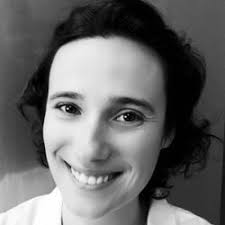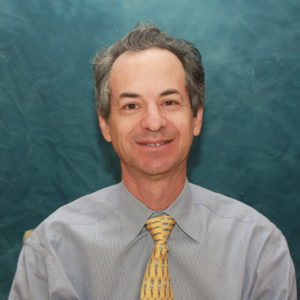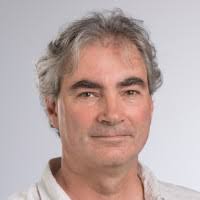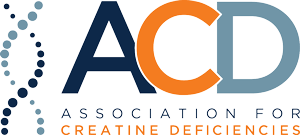Gene therapy is a promising line of investigation for rare diseases. However, gene therapy also requires significant financial investment, long timelines, and deep expertise across a variety of domains which makes it daunting to pursue for many diseases. Because gene therapy may be a viable path for creatine deficiency treatments, the ACD is pursuing how to best engage and speed up research in this area.
In the winter of 2019, our parent community raised an initial fund of $50,000 to be used towards gene therapy research efforts. With this support in mind, the ACD established the CCDS Gene Therapy Consortium in 2020 to foster concentrated efforts into gene therapy for creatine deficiencies.
As a first step, we brought together a group of outstanding researchers with deep expertise in gene therapy and/or creatine deficiencies to form the Gene Therapy Consortium. They include Dr. Jagdeep Valia, Dr. Andreas Schulze, Dr. Nicola Longo, Dr. Laura Baroncelli, Dr. Matt Stockler, Dr. Gerry Lipshutz, Dr. Olivier Braissant and Dr. Steven Grey. Several of these researchers have been engaged in gene therapy research in either CTD or GAMT and are sharing their expertise and knowledge with the entire consortium.
The mission of the consortium is to facilitate the timely sharing of information and development tools among labs that are pursuing gene therapies for creatine deficiencies. We believe that by building a collaborative environment and supporting shareable tools through grants we can shorten the timeline and effort required to find gene therapy solutions for creatine deficiencies. The consortium meets on a quarterly basis as a group to discuss the latest research and provide peer expertise. Sangeetha Iyer, ACD Scientific Advisor, and Laura Trutoiu, ACD Director of Research facilitate the scientific meetings and follow-up conversations while ensuring that the parent voice is represented.
In February 2020, ACD held the first CCDS gene therapy consortium meeting to discuss progress on gene therapy approaches for CCDS and the outstanding problems faced by the field.
The first meeting shared information on the vector types, i.e. the viral delivery methods that are being developed to generate the gene therapies and the pros and cons of each method. This fostered a discussion around the outstanding questions in the field-
- What are the levels of creatine that need to be achieved in the brain and elsewhere for global correction?
- How do cells and tissues regulate the intracellular concentrations of creatine?
- What approaches could be utilized to answer these questions?
Understanding these factors will aid in the development of a safe gene therapy for CTD. Given the shared metabolic pathway for creatine and GAMT, such findings could also be extended to GAMT gene therapy approaches.
It was noteworthy that all researchers in the CCDS gene therapy consortium were discussing insights and data that were unpublished thus far. All members agreed that the goal of the consortium would be to share such data and insights to aid in the collective development of gene therapy for the field of CCDS. It would also serve as a forum to advance collaborative efforts between consortium members. At the end of the meeting, ACD discussed with each researcher the possibility of funding research efforts through the money raised from patient advocates and CCDS families.
With the information learned through these conversations, ACD has created the Gene Therapy Advancement (GTA) Award. Each grant will be up to a limit of $10,000 and is proposed to be used towards capacity building, resource/tool creation, or fulfillment of experiment. To apply for the GTA award, each researcher can submit a short proposal where the goals of the proposal and impact of the results will be outlined. Each proposal will be evaluated by the ACD board of directors with guidance from scientific researchers.
Q2 2020 GTA Award

.
Q3 2020 GTA Award

Q4 2020 GTA Award-In-Progress
At the recommendation of multiple gene therapy consortium members, antibody development was selected as a project to fund for the Q4 of 2020. The antibody development process, if successful, will benefit multiple consortium members and advance research on several fronts. ACD Scientific Advisor Sangeetha Iyer has been working on a collaboration to pursue this project.
Antibodies are sensor-like biomolecules that recognize specific antigens or proteins. When studying gene therapy, antibodies can be used to detect expression of the desired protein from the introduced gene in a model of interest. Take the case of the creatine transporter deficiency disease- to study this disease, researchers often use cellular systems or mouse models that bear creatine transporter protein with specific mutations. These mutations can cause deletion of the whole or part of the protein. By using antibodies that are specific to different parts of the protein, one can detect if the protein is expressed in part or not at all. Antibodies can also be used to understand which parts of the body, organs or sub-regions of brain tissues produce the protein. Overall, antibodies are an important component of the therapeutic discovery tool kit. Having robust and selective antibodies is a necessary step in the development of therapies.
Q1 2021 GTA Award

In May 2021, ACD awarded the GTA grant to Dr. Olivier Braissant to enable testing of viral vector mediated gene therapy in a novel rat model of Creatine Transporter Deficiency (CTD). With this award, Braissant’s lab will be able to test a viral vector to treat CTD in mutant rats, measure correction of creatine levels in the brain and determine if behavioral issues can also be also improved by this method of gene therapy. The study also aims to provide insights to help with choosing the best applicable protocol to be used in humans. For instance, Braissant will look at identifying the best delivery route, best dose of AAV vectors, and best time of delivery. To learn more, read the press release.
Gene Therapy Award Applications
ACD is now accepting applications for funding. We encourage researchers to apply for these awards. To learn more, including how to apply for these awards, please visit the ACD research grants page.
Consortium Members
Dr. Steven Gray, UT Southwestern, USA
Dr. Nicola Longo, University of Utah, USA
Dr. Laura Baroncelli, Institute of Neuroscience, Consiglio Nazionale delle Ricerche, Italy
Dr. Andreas Schulze, University of Toronto, Canada
Dr. Jagdeep Walia, Queen’s University, Canada
Dr. Matthew Skelton, University of Cincinnati, USA
Dr. Gerald Lipshutz, UCLA, USA
Dr. Olivier Braissant, University Hospital of Lausanne, Switzerland





